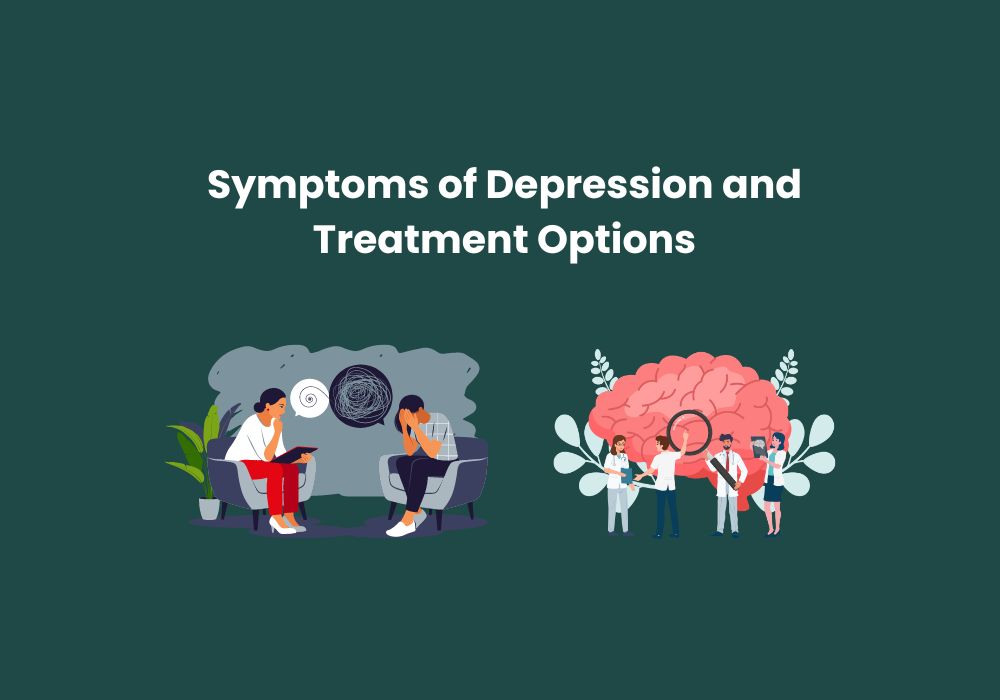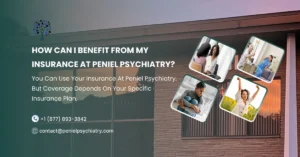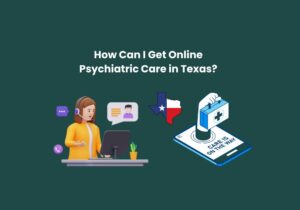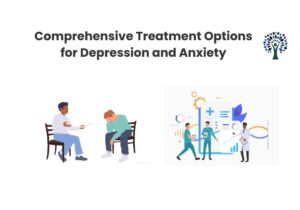Depression is a common mental health. Symptoms of Depression can vary but often include persistent sadness, lack of energy, difficulty concentrating, and a loss of interest in activities once enjoyed. Physical symptoms like changes in sleep or appetite may also occur. Depression is more than just feeling down; it can impact all aspects of life and requires attention and treatment to manage effectively.
Before starting this topic, make sure to check out our previous blog post, Major Symptoms of Major Depressive Disorder. It’s important to understand these key symptoms so you can identify them and get the right help when needed.
Understanding Depression
Depression is a common mental health condition that affects how a person feels, thinks, and handles daily activities. It can cause persistent sadness and loss of interest in previously enjoyable activities. Depression can vary in severity, ranging from mild to severe, and it requires appropriate treatment to improve quality of life.
Major Symptoms of Depression
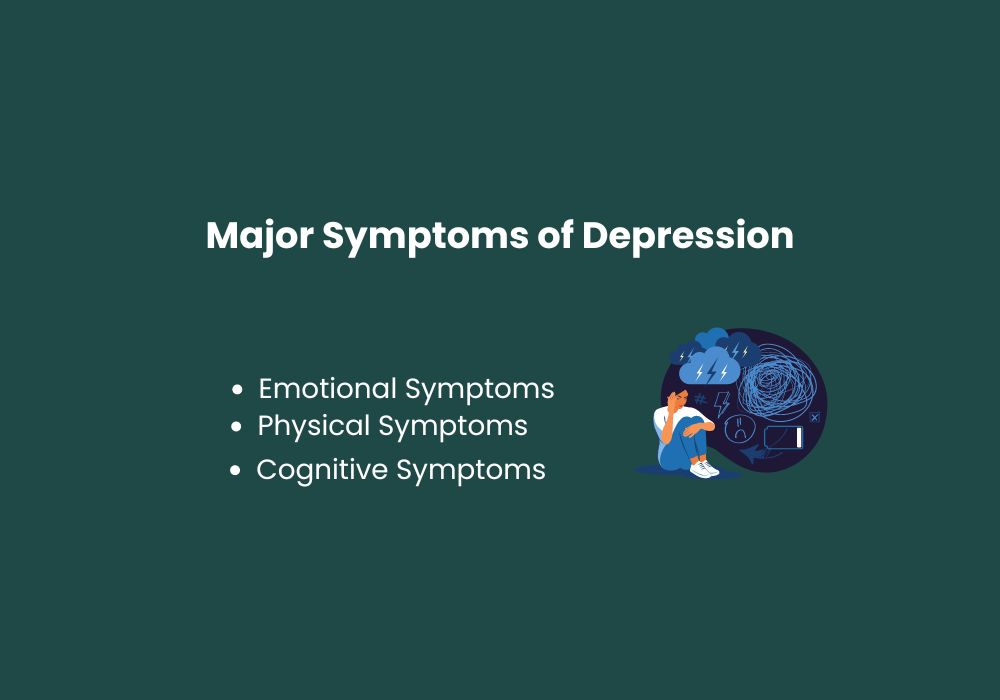
Emotional Symptoms of Depression
- Persistent Sadness or Low Mood: A continuous feeling of sadness, emptiness, or hopelessness that lasts most of the day, nearly every day.
- Loss of Interest or Pleasure (Anhedonia): A marked decrease in interest or pleasure in all, or almost all, activities that were once enjoyed, including hobbies, social activities, and relationships.
- Feelings of Worthlessness or Excessive Guilt: Unwarranted feelings of worthlessness, self-blame, or guilt over past actions or situations.
- Increased Irritability or Frustration: Heightened irritability, frustration, or anger, even over small matters.
Physical Symptoms of Depression
- Changes in Appetite or Weight: Significant weight loss or gain, or changes in appetite (either increased or decreased appetite).
- Sleep Disturbances: Insomnia (difficulty falling or staying asleep) or hypersomnia (excessive sleeping).
- Fatigue or Loss of Energy: Persistent feelings of tiredness or exhaustion, even after rest or minimal physical activity.
- Physical Aches and Pains: Unexplained physical problems, such as headaches, back pain, or other chronic pain conditions.
Cognitive Symptoms of Depression
- Difficulty Concentrating or Making Decisions: Trouble focusing, remembering details, or making decisions, which can impact work, school, or daily tasks.
- Recurrent Thoughts of Death or Suicide: Frequent thoughts about death, suicidal ideation (thinking about or planning suicide), or suicide attempts.
Treatment Options for Depression
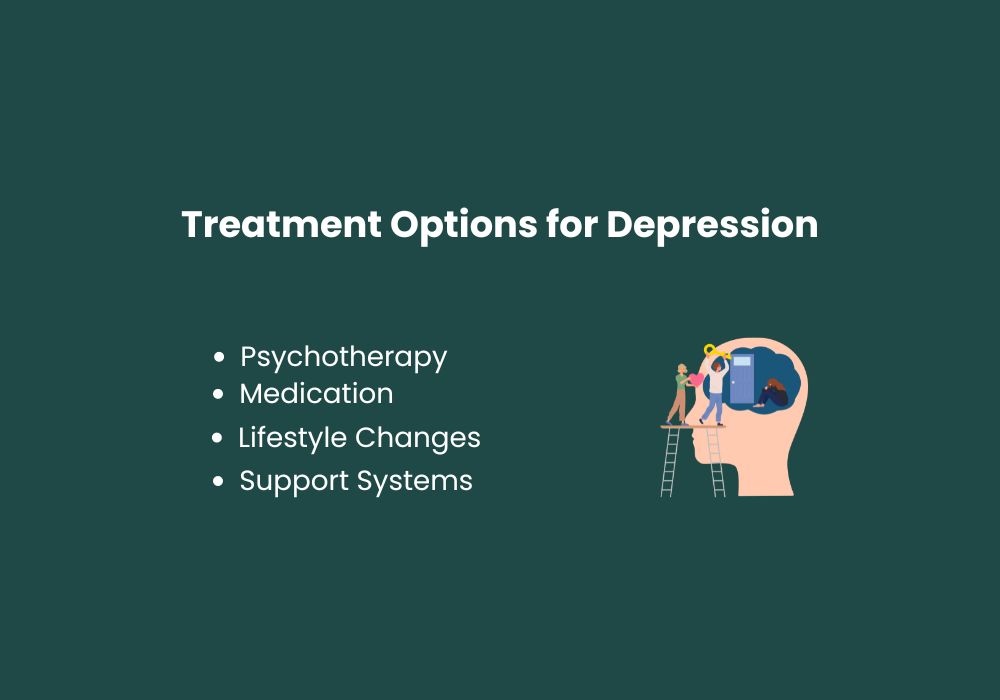
Effective treatment for depression often involves a combination of therapy, medication, lifestyle changes, and support. The best approach depends on the individual’s symptoms, preferences, and overall health.
1. Psychotherapy
- Cognitive-behavioral therapy (CBT): Focuses on identifying and changing negative thought patterns and behaviors.
- Interpersonal Therapy (IPT): Helps improve communication skills and relationships.
- Behavioral Activation: Encourages engagement in meaningful activities to counteract depressive symptoms.
- Psychodynamic Therapy: Explores underlying emotional conflicts and past experiences.
2. Medication
- Antidepressants: Medications such as Selective Serotonin Reuptake Inhibitors (SSRIs), Serotonin and Norepinephrine Reuptake Inhibitors (SNRIs), tricyclic antidepressants, and atypical antidepressants can help balance brain chemicals and improve mood.
- Mood Stabilizers and Antipsychotics: May be used in combination with antidepressants, especially in cases of severe depression or co-occurring bipolar disorder.
3. Lifestyle Changes
Regular Physical Activity: Exercise can help reduce symptoms of depression by increasing the production of endorphins and other feel-good chemicals in the brain.
- Healthy Diet: A balanced diet rich in nutrients can support overall mental health.
- Sleep Hygiene: Maintaining a regular sleep schedule and creating a restful sleep environment can improve sleep quality.
- Stress Management: Techniques such as mindfulness, meditation, and yoga can help reduce stress and improve mood.
4. Support Systems
- Support Groups: Connecting with others who have similar experiences can provide emotional support and practical advice.
- Family and Friends: Building a strong support network with loved ones can offer comfort and encouragement.
- Professional Help: Regular follow-ups with healthcare providers ensure the treatment plan is effective and can be adjusted as needed.
5. Advanced Treatments
- Electroconvulsive Therapy (ECT): Used for severe depression that has not responded to other treatments, ECT involves sending small electrical currents through the brain to induce controlled seizures.
- Transcranial magnetic stimulation (TMS): is a non-invasive procedure that uses magnetic fields to stimulate nerve cells in the brain and is used for treatment-resistant depression.
- Ketamine Therapy: Administered under medical supervision, ketamine has shown rapid antidepressant effects in some patients with treatment-resistant depression.
Conclusion
Depression is a serious but treatable condition. Recognizing its symptoms and seeking appropriate treatment can significantly improve the quality of life. At Peniel Psychiatry, our team of experienced professionals is dedicated to providing comprehensive care tailored to each individual’s needs. If you or a loved one is struggling with depression, don’t hesitate to reach out for expert guidance and support on your journey to recovery.

